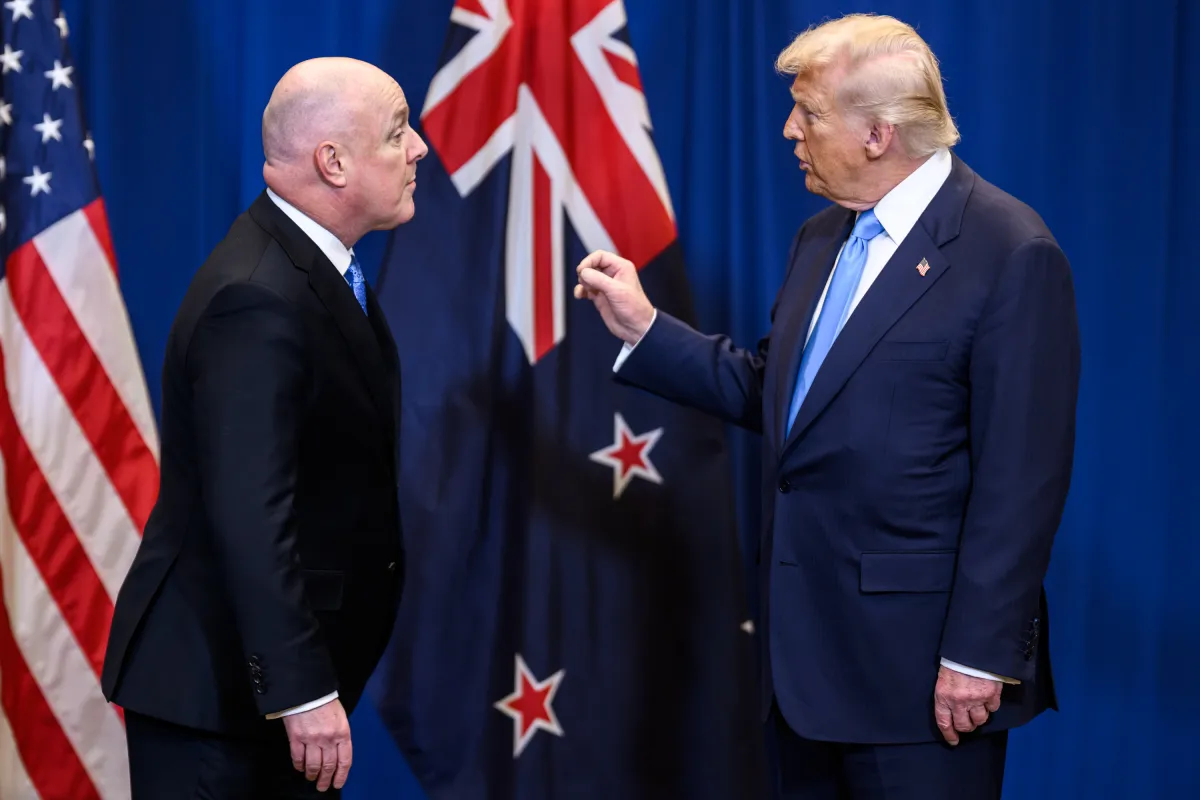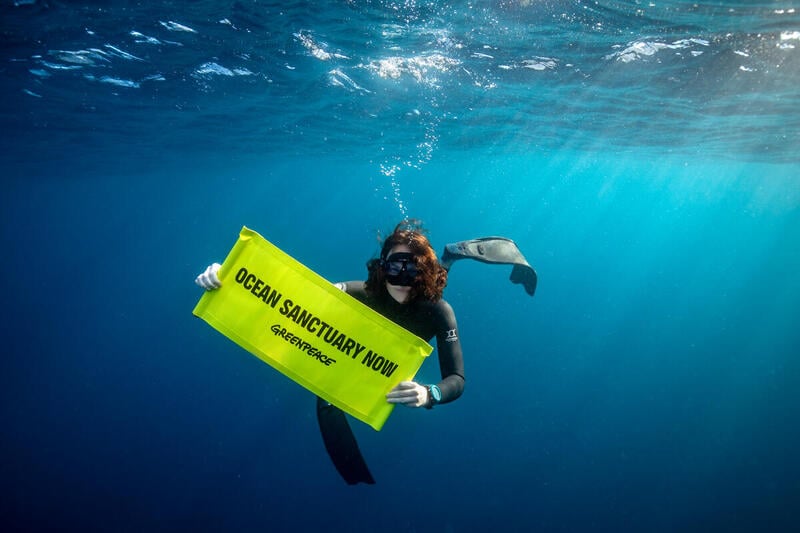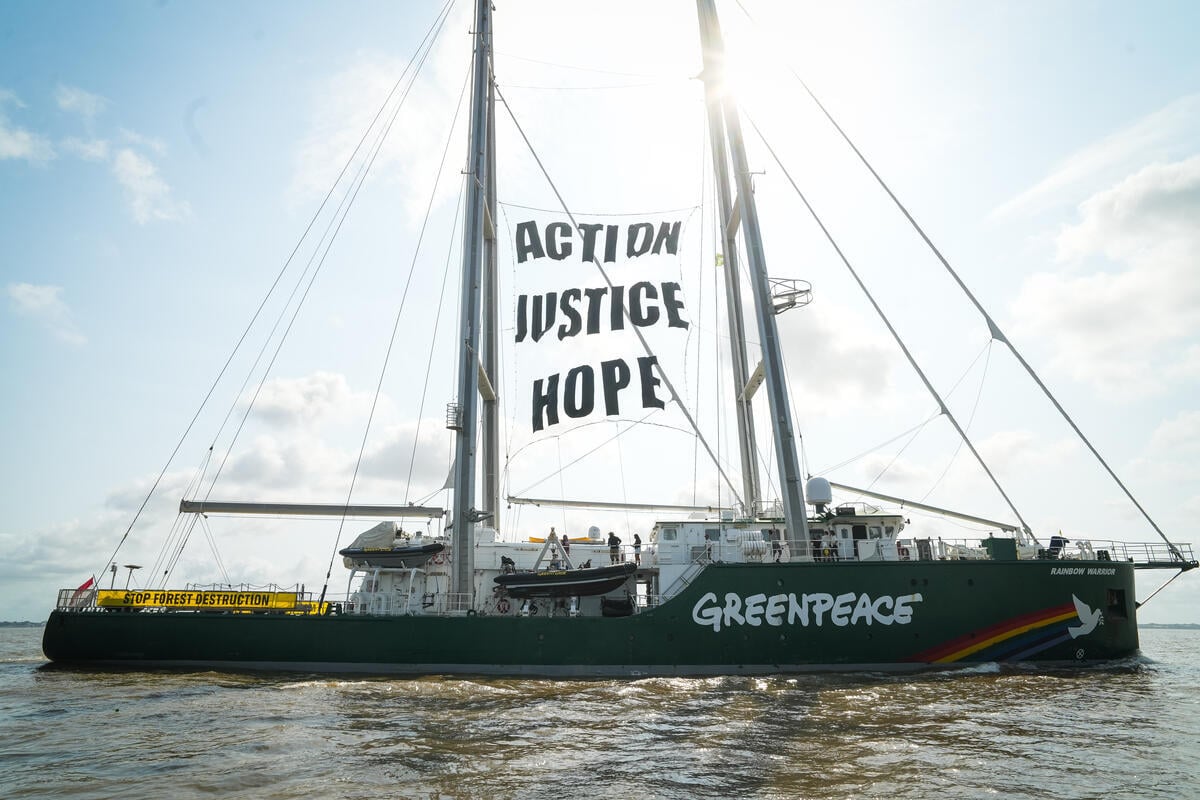The Netflix documentary Seaspiracy hit screens last week, taking a deep dive into what’s causing the rapidly declining state of the ocean.
Directed by British filmmaker Ali Tabrizi, the film follows his journey as he discovers the true cost commercial fishing is having on the sea, and what we stand to lose if we continue to allow this industry to run rampant across our blue planet.
After watching everything from whale hunts to industrial-scale bottom trawling, shark-finning to lice-infested fish farms, Tabrizi concludes (spoiler alert) that the oceans are in big trouble and the best way for him to be active on this issue is to avoid eating seafood. With global fishing supply chains so convoluted and complex, he concludes there’s no such thing as sustainable seafood – and vows to ditch the fish for good.
I’ve seen Seaspiracy, now do I need to go fish-free to save the ocean?
The film has already caused some controversy (not a bad thing), but like its Cowspiracy counterpart, unfortunately some of the information it contains has also been questioned.
It has also been criticised for ignoring indigenous knowledge of the ocean and how to take care of it. Read more on that here.
Seaspiracy does however make some important points and there is no doubt that the oceans are in big trouble. I’m not going to do a full fact-check of Seaspiracy, but I do want to challenge the idea that the only thing you can do is stop eating fish.
In the Global North where our access to a variety of different food types is greater, we should all be eating less animal products. It’s better for the planet and it’s better for us, too.
But the problem with claiming this is the best thing you can do, or the only route to saving the ocean, is that it’s just not enough for some of us to change our diets. We need big systemic change, and we need it quickly.
Also, many communities around the globe, and indeed here in Aoteaora, depend upon fishing to survive. Not everyone can afford to avoid seafood, and many of these communities don’t take more from the sea than they need. A blanket ban on eating fish would unfairly disadvantage these communities. It is industrialised fishing that’s the true evil here, not traditional harvesters taking what they need to feed their family.
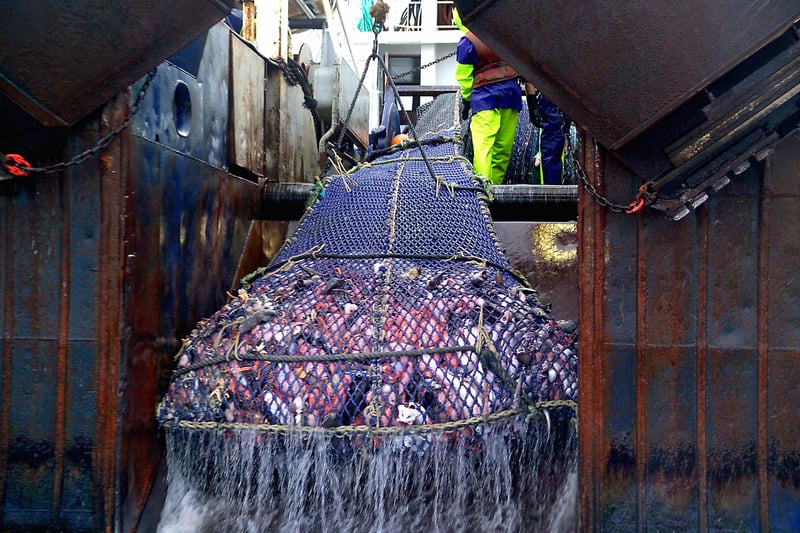
Many people in the Global South are amongst the most vulnerable in the world, fighting multiple threats including climate change and overfishing – both catastrophes that have been largely caused by the privileged Global North.
Going fish-free is great if you can, but our true power lies in when we work together. If we want to change things at the speed we need to, we must put pressure on global governments to change the way we treat the ocean. The ocean doesn’t have time to wait for every individual to go vegan. Read more about why going vegan can’t be the only answer.
Global solutions to problems raised by Seaspiracy
Solving a problem as large as this is not simple. But there are solutions, backed up by scientists who have been waving red flags for years.
What we need to get these solutions implemented is people power. Everyday people, getting together and creating pressure on their government to protect the ocean for us all.
This is how we’ve made change happen many times before – including kicking oil and gas giants out of New Zealand, stopping shark finning, and getting more protections for Māui dolphins.
Protecting key areas of the sea from commercial fishing – areas that are known migratory pathways, biodiversity hotspots and spawning grounds – is one of the major solutions scientists have put forward to save the ocean from collapse.
A Global Ocean Treaty at the UN would give us the ability to protect 30% of the world’s ocean from fishing and other threats, and allow it to start recovering. The good news is that we know recovery is possible, and that it could happen within a few decades, if we take action now.
Greenpeace has been campaigning for a Global Ocean Treaty for years, and it is vital that we get the strongest version of it across the line.
If you do one thing for the ocean today – make it joining this campaign for international ocean sanctuaries.
It starts local
In Aotearoa and around the world, the commercial fishing industry is doing widespread damage to the ocean through techniques like bottom trawling that destroy habitats, kill non-target species, and take too many fish for populations to rebuild.
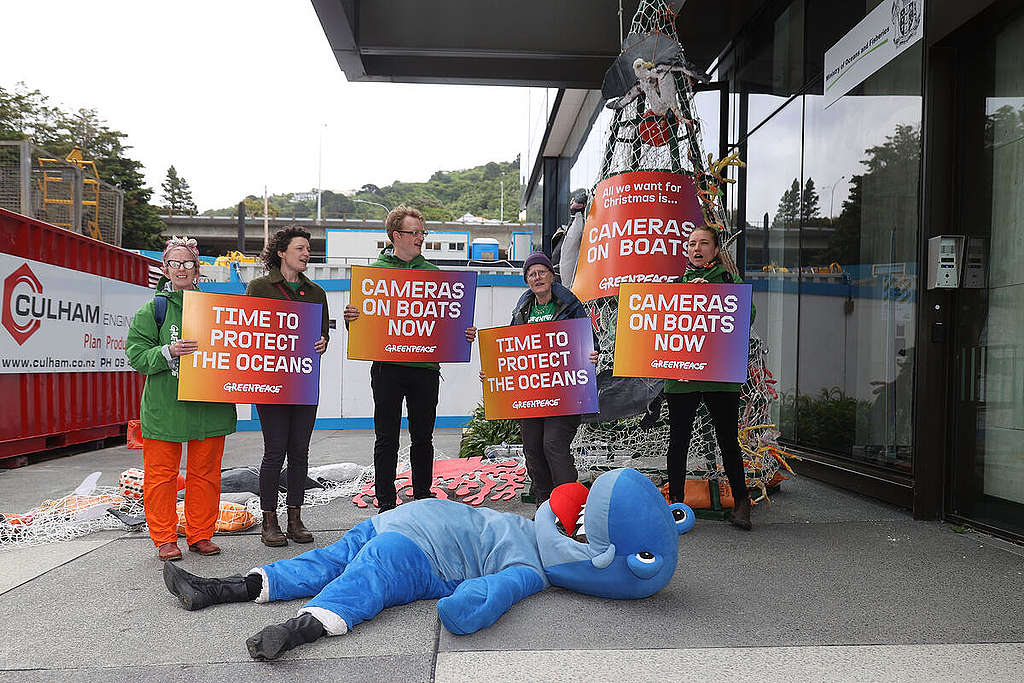
As Seaspiracy noted, this is having a devastating effect on the functioning of the ocean – our biggest carbon sink, and home to an estimated 80% of life on this planet.
We cannot fight the twin crises in biodiversity and climate if we don’t protect the ocean, take less from it, and stop damaging its ability to sequester carbon.
So we must take the commercial fishing industry to task, and force governments to stop letting them off the hook for the damage they do. Our survival, and the survival of everything else on this planet, depends on a healthy ocean. If the ocean dies, we die too.
In Aotearoa we’ve known for years that Big Fishing companies have too much influence over our Government and ocean management decisions, and we know the way we fish needs to change.
We know that the commercial fishing industry lobbies the Government relentlessly and has successfully watered-down ocean protection measures for decades – from those that protect seabirds to those designed to protect coral. We suspect that it’s their influence preventing New Zealand from committing to a strong Global Ocean Treaty at the UN.
Take on the most destructive forms of fishing
Bottom trawling – the most devastating form of fishing there is – needs to be banned where corals grow and provide vital habitats for fish and the very basis of the oceanic food chain.
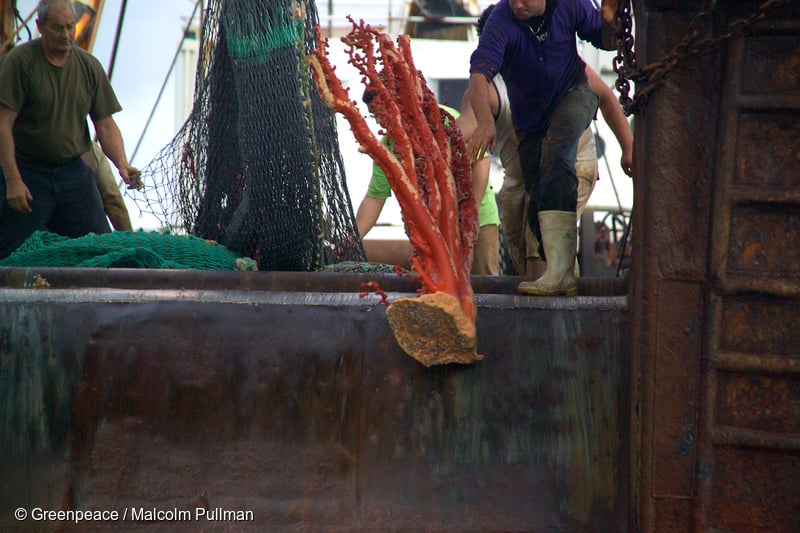
When bottom trawlers target seamounts where these corals are found, they bulldoze everything. Their giant nets capture everything in the area, from target to non target species, ancient corals to sharks. Worse still is that the nature of the trawling destroys the habitat, flattening it, meaning it can no longer support life, and won’t for decades to come.
In Seaspiracy they quote the stat that 3.9 billion acres of seafloor is destroyed by bottom trawling every year, compared to 25 million on land.
The impacts of this on biodiversity are obvious, but just last month it was revealed that bottom trawling also releases more carbon emissions than global aviation.
This form of fishing is a double whammy for the environment – wiping out species and habitats, and disturbing the world’s largest carbon sink on which life on Earth depends.
Hold the fishing industry to account
The commercial fishing industry needs to be held to account for what they do out at sea. A key component to that is getting more transparency around it.
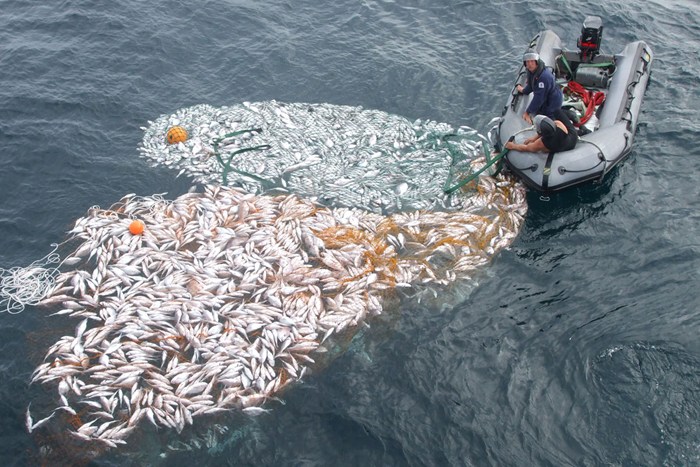
There are already rules for fishers about how to protect the ocean, but without independent checks there is no way to ensure they are being followed. Again and again we are shown that when we rely on commercial fishing to self-report the impacts of their fishing, they don’t tell the whole truth.
To ensure they do, and to make sure commercial fishing can’t stay out of sight and out of mind, we need cameras on all commercial fishing vessels, and the footage accessible to more than just the industry.
Join the campaign to get cameras on 100% of the commercial fishing fleet:
Tackle plastic fishing waste
The plastic-free movement has exploded in the past five years, bringing with it millions of individuals who vowed to avoid plastic bottles, ban the bag, and ditch the plastic packaging. Eliminating single-use plastic is important if we want to stem the tide entering the ocean, but there’s one industry that’s still getting off the hook and they’re a major contributor.
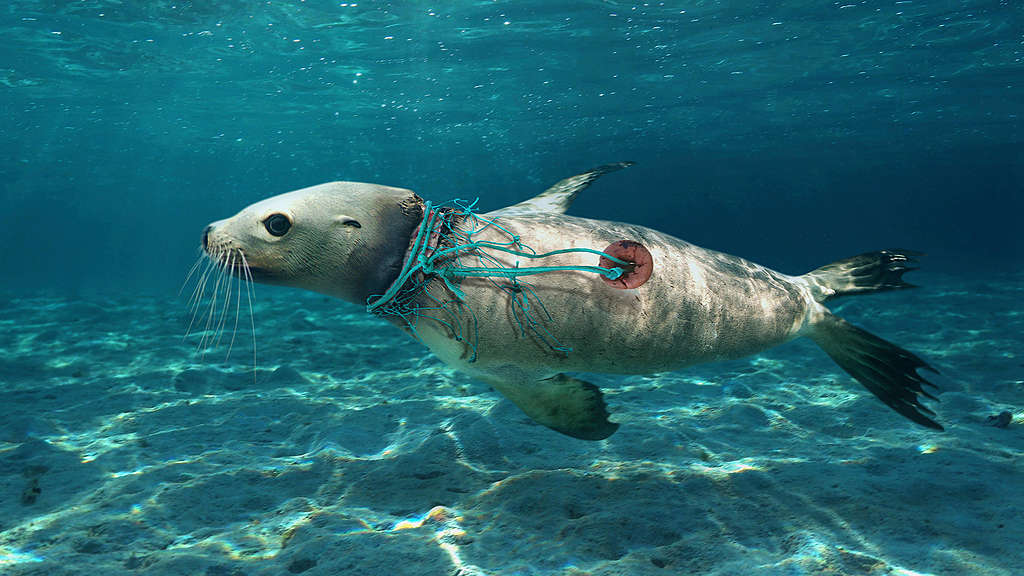
Ghost fishing gear – lines and the like that are lost or discarded at sea by commercial fishing – is everywhere. It’s estimated fishing waste makes up a whopping 46 per cent of what’s in the Great Pacific Garbage Patch.
This stuff is all the more deadly to ocean life because it was always designed to kill, and when it’s lost at sea it goes on killing for years after becoming separated from its original owner. Many whales, dolphins, turtles and fish get caught up in these nets and perish, or ingest them and die.
It’s high time commercial fishing was held to account for their role in the plastics crisis, and we’ve got a campaign for that too.
Don’t just sign petitions
Taking action is what Greenpeace is all about. For fifty years, we’ve been standing up for the ocean, and all life on this Earth.
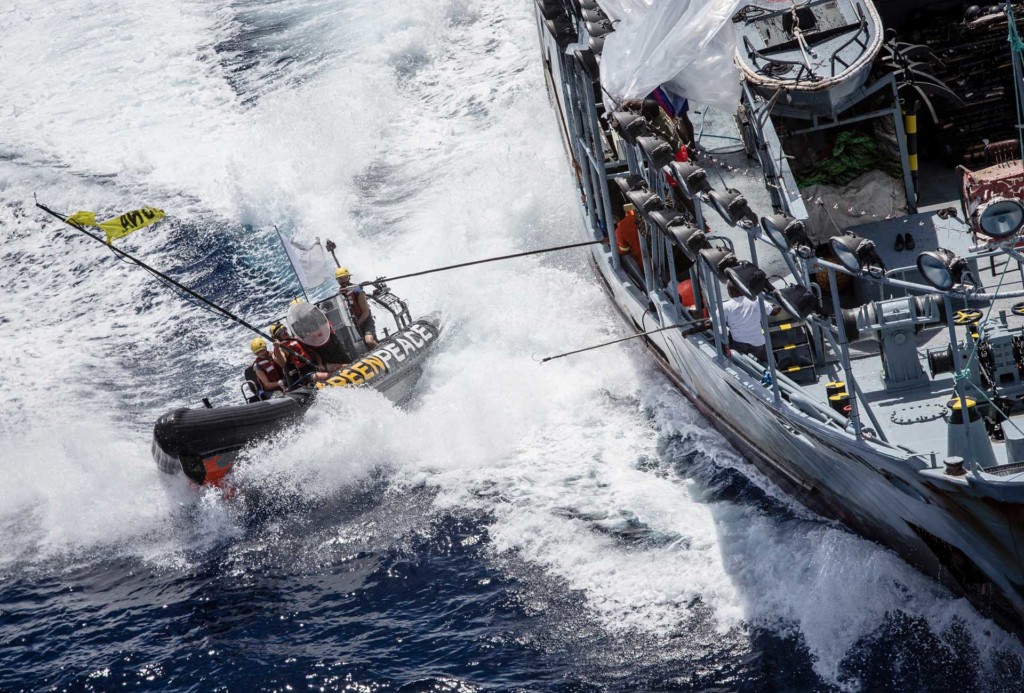 © Will Rose / Greenpeace
© Will Rose / GreenpeaceOur independence matters. We don’t take money from governments or corporations, so we’re free to campaign against whatever and whoever we need to.
If you want to get involved further in protecting our blue planet, send us a message at [email protected] and someone will be in touch with you.
And sign up now to donate monthly, it’s regular contributions from people like you that keeps us in action.
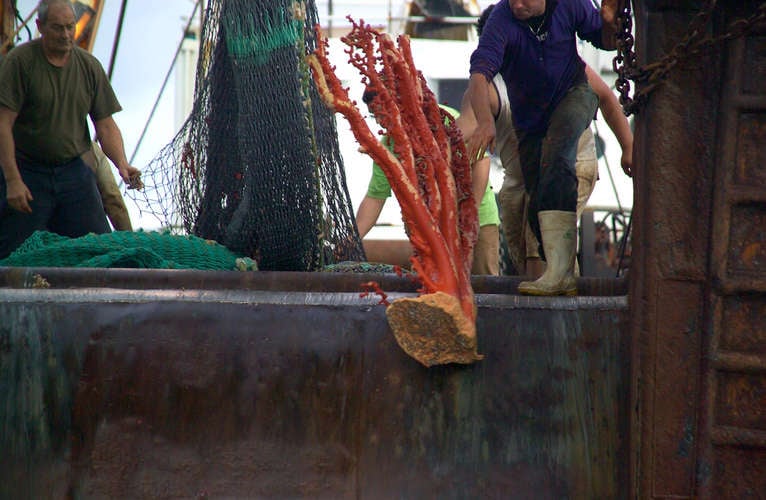
Join the call to demand that the NZ Govt bans bottom trawling on seamounts and similar deep sea features, and stop issuing permits for bottom trawling in international waters.
Take Action

